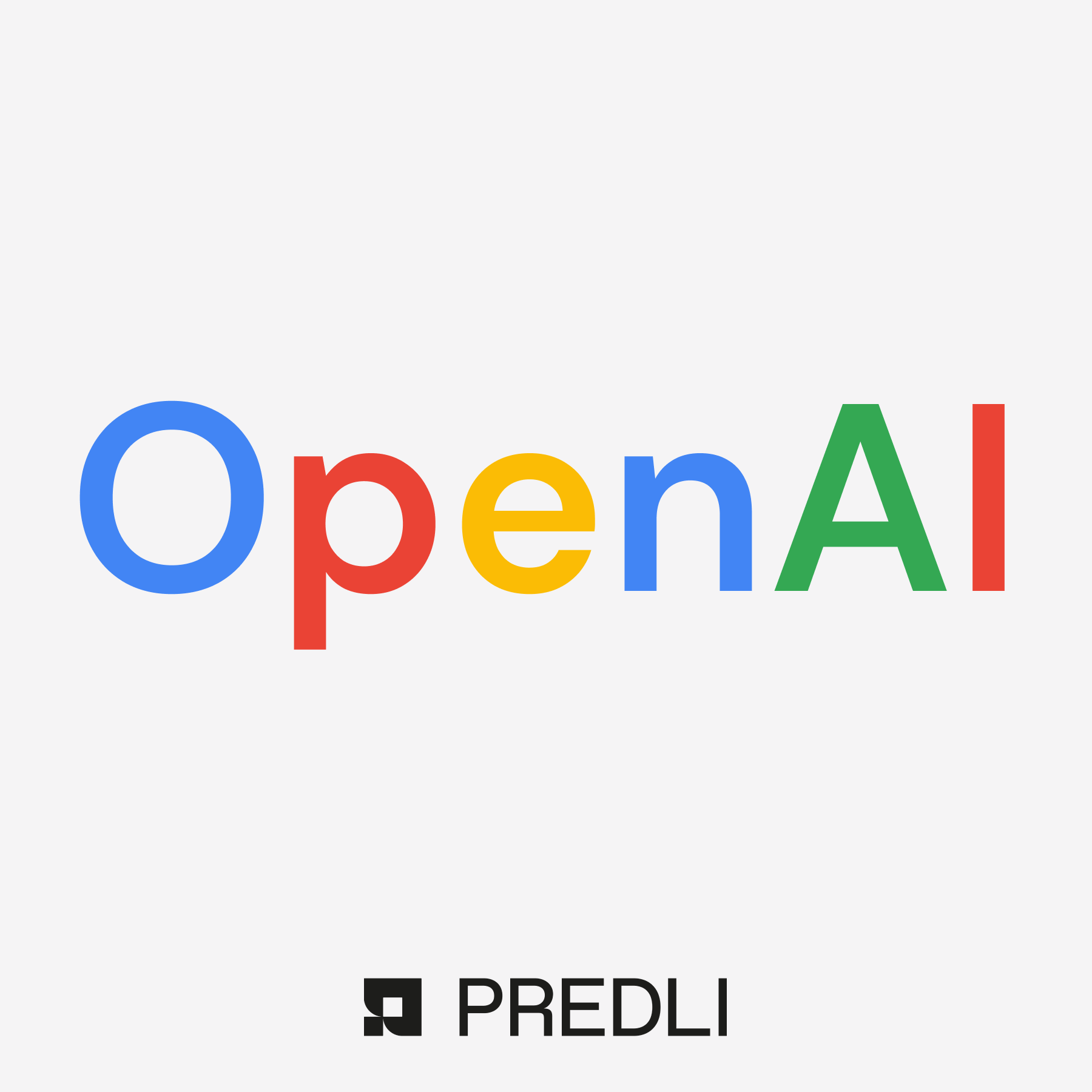.png)
Modern organizations don’t struggle with a lack of data - they struggle with turning it into fast, reliable insights and trustworthy answers. This post explores how our new Database Agent replaces simple text-to-SQL with automated analytical reasoning, reducing manual workflows while preserving transparency, control, and analytical rigor.

What will define AI in 2026? AI has moved from experimentation to operations. In this outlook, we examine the signals already shaping what comes next, from agents entering real workflows and new AI-native interfaces to open-weight models, synthetic media governance, and AI-driven advances in science.
.png)
As 2025 comes to an end, we revisited the predictions we made a year ago to understand how the AI landscape actually evolved. Some shifts accelerated faster than expected, like the rise of practical agents and deeper OS-level AI, while others surfaced new challenges around regulation, energy use and security. This wrap-up distills the key developments across technology, industry and society, and sets the stage for our upcoming outlook on where AI is heading next.
.png)
Microsoft recently published new research on asynchronous reasoning, introducing a model-level structure that moves beyond traditional linear chains of thought. This article breaks down what the shift means, how it changes the internal reasoning process, and why it aligns with the emerging agentic architectures shaping the next generation of AI systems.
.png)
Most AI systems react to prompts, but few can reason in a structured and transparent way. H-MAC (Hierarchical Multi-Agent Cognition) changes that, by coordinating multiple specialized agents through planned, adaptive workflows. By combining hierarchical planning, dynamic task decomposition, and verifiable reasoning traces, H-MAC transforms AI from reactive problem solving to scalable, explainable reasoning inside Predli Studio.
.png)
Every word processed by a large language model comes with a measurable cost - the token. This article examines how token-based pricing creates hidden inefficiencies across languages, why English remains the cheapest language to compute, and how organisations can reduce costs through smarter prompt design, model routing, and custom tokenization.

What happens when you ask an AI platform to describe itself? This article was entirely generated by Predli Studio, written in our own blog style and tone. In it, Predli Studio explores how it uses Model Context Protocols (MCPs) to power human-centered AI for enterprise knowledge work - enabling organizations to connect tools, data, and workflows in transparent and collaborative ways. It’s a glimpse into how AI can enhance human expertise rather than replace it.
.png)
What began as experimental demos has become a new frontier in enterprise AI. Over the past year, agentic systems have moved from concept to real deployments, revealing both their potential and their limits. Together with McKinsey’s findings, we reflect on the hard-earned lessons from building agents that move beyond promise to real, measurable performance.
.png)
AI is spreading faster than any technology in history - yet trust remains fragile. Wealthy nations lead today, but growth is steepest in emerging markets. Students normalize it in daily life, while governments struggle to regulate it. The future of AI won’t just depend on what it can do, but on how we choose to use and govern it.
.png)
Billions are being invested in generative AI pilots, but most never escape “AI purgatory.” Just like with past waves of IT, the real struggle isn’t the technology itself - it’s scaling, adoption, and trust. In this piece, we look at why so many initiatives stall, and what it takes to turn AI into a real business advantage.

For the past decade, APIs have powered digital transformation. But the landscape is shifting. With Model Context Protocol (MCP), AI agents are no longer just consumers of data - they’re active participants in business workflows. For companies, this isn’t just a technical upgrade, it’s a strategic opportunity, and a risk for those who fall behind.

As search moves from links to AI-generated answers, websites face a new challenge: being readable by large language models. Traditional standards like robots.txt guided crawlers, but they don’t work for AI. llms.txt introduces a lightweight, markdown-based standard to ensure content is efficiently parsed, understood, and surfaced in generative search.

As companies integrate AI-powered agents into customer service, agent evaluation becomes crucial. It's more than technical; it's about protecting revenue, brand trust, and ensuring security. Proper evaluation prevents costly errors, brand-damaging failures, and operational risks, while enabling scalable, trustworthy AI support. By prioritizing agent evaluation, businesses drive innovation, customer satisfaction, and sustainable growth.
.png)
Everyone’s talking about generative AI, but how do you actually make it work in a real organization, with real data, real workflows, and real constraints? This post introduces Predli Studio: a platform built to move beyond the hype and bring AI into the core of your business. We also take a closer look at how it stacks up against Microsoft Copilot and where it goes further.

GraphRAG takes RAG systems to the next level by structuring internal data as a knowledge graph. Instead of retrieving isolated text snippets, it builds context - and uncovers insights that traditional RAG approaches often miss. In a recent master’s thesis at Predli, we tested GraphRAG on financial reports from major tech companies, and the difference is clear: GraphRAG connects companies, events, and trends to deliver real understanding of the data.
.png)
AI is moving from the cloud to smartphones, with on-device LLMs unlocking faster, more private, and cost-efficient applications. Google’s Gemini Nano is leading the way on Android, while Apple is rumored to explore Alibaba’s Qwen models for system-level AI. With LoRA fine-tuning, developers can customize AI without massive compute costs, enabling smarter, more responsive apps. This article explores how on-device AI is reshaping mobile technology and what it means for the future.
.png)
Fine-tuning allows businesses to adapt large language models (LLMs) to specific needs, improving accuracy, efficiency, and consistency without the need for full-scale training. By refining pre-trained models with domain-specific data, fine-tuning enables AI to produce more relevant and structured outputs tailored to specialized applications. Techniques like Low-Rank Adaptation (LoRA) have made this process more accessible, reducing computational costs and allowing multiple fine-tuned models to coexist efficiently. Whether for edge AI, standardized document processing, or cost-effective AI deployment, fine-tuning unlocks new possibilities for optimizing AI performance.

Agentic workflows enhance AI capabilities by integrating reasoning, decision-making, and tool usage. LangGraph enables structured multi-agent interactions, improving efficiency and adaptability. A key factor in performance is prompt optimization - well-designed prompts significantly impact accuracy and workflow execution. This article explores how optimized prompts enhance AI-driven decision-making and compares their effectiveness in a structured test.

The spotlight in AI is shifting. While generative models like GPT-4 once dominated the scene, reasoning models are now stealing the show with human-like thinking, fewer errors, and greater accountability. OpenAI’s o1 series raised the bar, but its high costs and closed nature left many behind. Enter DeepSeek R1—a bold, open-source rival with a 128K context length that’s redefining accessibility in advanced AI. Could this be the start of a new era in AI innovation? Dive into the details and discover what sets DeepSeek R1 apart.
.png)
Discover how GraphRAG reimagines Retrieval-Augmented Generation (RAG) by combining LLMs with structured knowledge graphs. This new approach addresses key limitations of traditional RAG systems, offering contextually rich and insightful solutions for complex data relationships.

What will define AI in 2025? At Predli, we’ve explored the trends and challenges shaping the year ahead. From specialized agents transforming workflows to nuclear power driving sustainable growth, we see exciting opportunities - but also risks like misinformation, security threats, and debates over data ownership.

The "AI Commission's Roadmap for Sweden" aims to elevate Sweden’s AI rank from 25th to the top 10 with key initiatives like democratizing AI, fostering collaboration, advancing PETs, and establishing an EU AI Factory. Predli supports this vision and is ready to contribute.
.png)
Apple’s latest AI initiative introduces new tools aimed at boosting creativity and productivity, including Writing Tools for smarter text editing and a more capable Siri. Still in its beta phase, the features show promise but leave questions about their real-world impact. Is this the beginning of a transformative journey, or just an incremental step?
.jpg)
Agentic AI enables autonomous workflows that adapt in real time, transforming business processes by reducing human intervention in routine tasks. This shift underscores AI’s potential in driving efficiency and real-time adaptability.

Meta's Llama 3.1 release, including the powerful 405B model, sets a new standard for open-source LLMs, rivaling proprietary models like GPT-4o and Claude 3.5 Sonnet. Despite being non-multimodal, it excels in benchmark performance and long-context tasks. This breakthrough highlights the growing impact of open-source AI in the industry.

Summary of our paper ARAGOG: Advanced RAG Output Grading

By decoupling the retrieval and synthesis processes and introducing innovative methods such as Sentence-window Retriever, Auto-merging Retrieval, and Document Summary, we significantly improve the LLM's ability to generate precise, contextually rich responses.

Query expansion tehcniques, such as Hypothetical Answer and Multi-Query, offer promising avenues for enhancing the performance of language models by facilitating more relevant and accurate information retrieval. By leveraging these sophisticated methods, we can push the boundaries of what's possible with LLMs, leading to more precise and useful responses to complex queries. Stay tuned for more advanced RAG techniques!
.png)
The true value of RAG lies in its ability to grant LLMs access to previously unseen internal datasets. This access is pivotal for organizations that need to utilize their proprietary data for enhanced decision-making. By integrating RAG, LLMs can generate responses that are not only accurate but also tailored to the specific context and knowledge base of a business.

SOLAR 10.7B's introduction showcases a transformative step in LLMs, blending Llama 2's architecture with Mistral 7B's weights for unparalleled performance. Notably, its success in single-turn conversations, as reflected by its impressive Model H6 score, marks a new industry benchmark. This breakthrough underscores South Korea's rising prominence in AI, promising innovative applications of LLMs across diverse fields.

The synergy between sensitive data and LLMs marks a significant step forward in sectors like healthcare and finance. The insights derived from data can revolutionize services and outcomes. However, this journey must be underpinned by a strong commitment to ethical data use, robust protection strategies, and respect for privacy. In this article we explore three approaches to combine LLMs with sensitive data, while protecting data integrety.

The introduction of Google's Gemini model to the competitive landscape of Large Language Models, with its advanced multimodal capabilities, is a noteworthy event. Its impressive performance could be a game-changer if further evaluations uphold Google's claims. However, the model's true standing, particularly in comparison to GPT-4, will hinge on unbiased, independent validation in the times ahead.

Microsoft's Phi-2 model represents a significant shift in the landscape of Large Language Models, challenging the notion that bigger models always equate to better performance. With its 2.7 billion parameters, Phi-2 rivals the performance of much larger models like Llama and Mistral, underscoring the power of its meticulously curated 'textbook-quality' training dataset.

This model, with its unique Mixture of Experts (MoE) architecture, marks a significant advancement, offering a blend of efficiency and capability that challenges even the best open-source LLMs. Key Highlights of Mixtral 8x7b: Unparalleled performance in the open-source domain. The MoE architecture enhances efficiency and processing speed. High VRAM requirements orient it towards research and enterprise applications. While Mixtral 8x7b may not rival the giants like GPT-4 in all aspects, it represents a significant step for open-source AI, hinting at a future where powerful AI tools are more accessible. Discover the depths of Mixtral 8x7b in our latest deep dive

Choosing between convenient proprietary or customizable open source large language models involves balancing rapid prototyping against long-term costs and data security. The optimal approach depends on use case breadth and security needs.
LiQA leverages AI to transform enterprise document search. Proprietary files are ingested, converted to vectors, and indexed for personalized QA. Questions retrieve relevant excerpts to contextualize answers. Ongoing improvements will enhance accuracy, efficiency, and knowledge sources. LiQA unlocks the potential of your organization's documents.

Our team explored using LLMs like GPT3.5 for controlled content generation from seed data. We designed prompts and evaluation methods to quantify quality. LLMs possess great potential but need guidance. Exciting times ahead!
.jpg)
Stockholm, May 28, 2021 — Predli announced today a collaboration with the AI for Good Foundation to accelerate work on the UN Sustainable Development Goals (UNSDGs) and address the most pressing challenges faced by our communities.
.jpg)
While we see manufacturers fiddling with AI and machine learning, Industry 4.0 is still a moonshot for many, including top Fortune 500 companies. The reasoning is simple, too many companies are stuck in the “pilot purgatory” phase. This is the state where companies have an idea that has moved to the proof of concept (PoC) phase, but instead of reaching customers, it ends up at the infamous PoC graveyard.